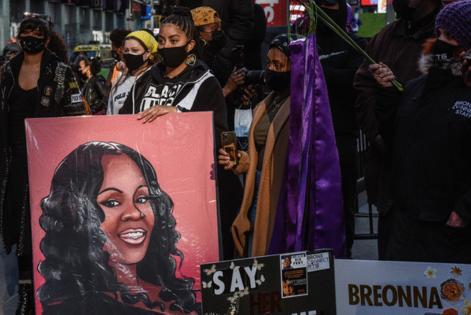Report: Trump's DOJ halts pending consent decrees. What does that mean for Louisville?
Published in News & Features
The U.S. Department of Justice under President Donald Trump’s new administration has halted all pending civil rights cases from the final months of previous President Joe Biden’s administration, according to media reports.
The pause will likely apply to a consent decree that Louisville Metro Police Department signed last month with federal justice officials to reform the troubled police department.
But Louisville Mayor Craig Greenberg vowed Thursday to improve the city police department, regardless of federal enforcement.
“Regardless of what happens in federal court, Louisville Metro Government and LMPD will move forward and honor our commitment to meaningful improvements and reforms,” Greenberg said in a statement.
The directive to stop civil rights cases, sent in a memo by acting Associate Attorney General Chad Mizelle and obtained by CNN, instructs the DOJ’s Civil Rights Division to not finalize any settlements or consent decrees made before Trump’s inauguration on Monday and to notify Mizelle of any agreements made in the past 90 days.
Civil rights attorneys were also told to not file any new complaints until further notice, according to a separate memo obtained by The Associated Press.
“The new administration may wish to reconsider settlements and consent decrees negotiated and approved by the prior administration,” read the memo obtained by CNN.
Consent decrees like the one signed in Louisville outline mandatory changes for troubled police departments. The changes are enforced by federal officials, and they’ve previously been used in cities including Ferguson, Missouri, and Baltimore.
The federal agency began investigating Louisville police in the aftermath of the high-profile police killing of Breonna Taylor, a 26-year-old Black woman, in her apartment in March 2020. Taylor’s death spurred nightly protests for months in Kentucky’s largest city and ignited calls for sweeping police reform.
Louisville’s consent decree, signed Dec. 12, outlines mandatory changes to LMPD, including policies related to the use of force, data collection, search warrants, street enforcement, arrests and citations.
Louisville’s agreement had not yet been approved by a federal judge, according to The Louisville Courier-Journal.
Trump previously criticized the use of court-ordered consent decrees for police reform efforts, according to CNN.
At a hearing last week, U.S. District Court Judge Benjamin Beaton said he wanted more information from the federal Civil Rights Division about Louisville’s consent decree, according to the Courier-Journal. He also said he would not be a “rubber stamp” for the consent decree.
The move would be the latest significant change in the first days of Trump’s second term.
After his inauguration Monday, he quickly signed a bevy of executive orders, including declaring an emergency at the U.S.-Mexico border, ending a program that allowed asylum-seekers to remain in the U.S. while their cases were being considered, and dismantling the government’s diversity, equity and inclusion policies.
©2025 Lexington Herald-Leader. Visit kentucky.com. Distributed by Tribune Content Agency, LLC.







Comments